Christine Jorgensen Story, The (1970)
“Operate on the brain, perform a lobotomy — fine! But take a pair of testicles and everybody explodes!”
|
Synopsis: |
|
Genres, Themes, Actors, and Directors:
Review: Unlike the real Christine Jorgensen, John Hansen isn’t lithe (or graceful) enough to pass as a woman, but he makes up for his physical limitations with a sympathetic performance. Unfortunately, the same can’t be said for Trent Lehman, the young actor playing George as a boy: his wooden acting (check out the forced, almost evil-looking smile on his face as he fondles a doll behind the Christmas tree!) shows why his movie career never took off. According to Jon C. Hopwood’s bio of Jorgensen on IMDb, Jorgensen — a Protestant — applied the ultimate “can do” attitude to her dilemma: because attraction to men as a man was unthinkable to George, he “made things right” by turning himself into a woman — thus, in an odd way, conforming to society’s norms and expectations. While I find this analysis intriguing, enough is known at this point about the origins of gender dysphoria to understand that George’s desire to be a woman ultimately stemmed from something much deeper than a desire simply to “fit in”. Redeeming Qualities and Moments:
Must See? Categories
Links: |
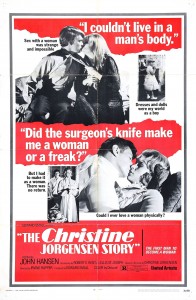
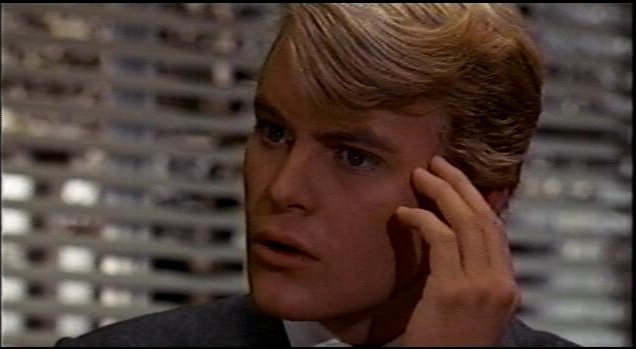
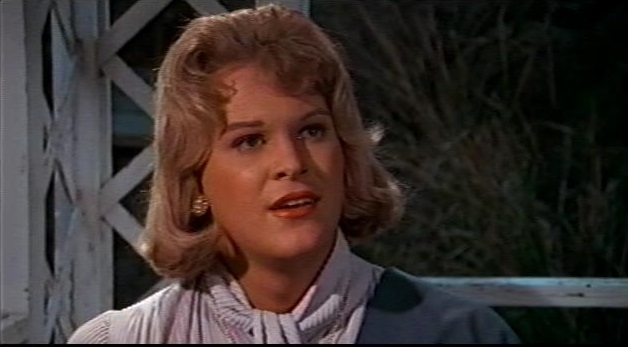
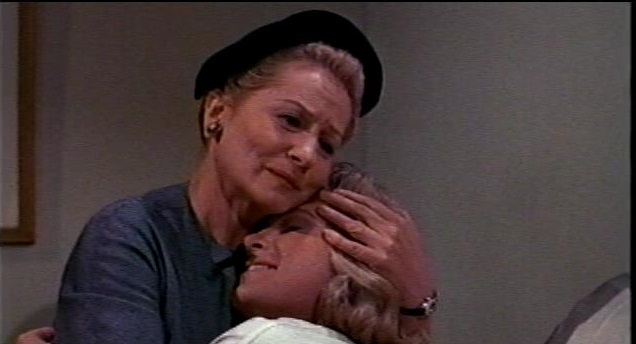

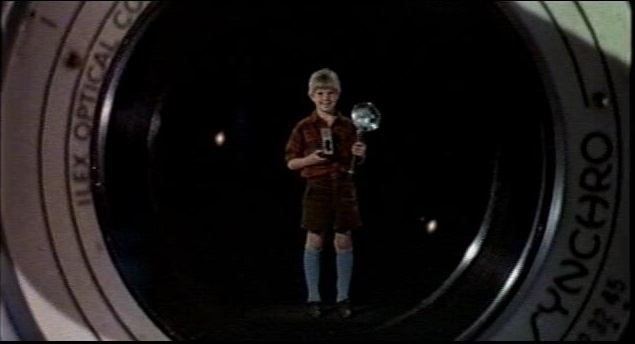
5 thoughts on “Christine Jorgensen Story, The (1970)”
A must (as I always remind myself, ‘for fanatics’) and your assessment of the film is astute. I’ve introduced this film to a number of people and, each time, each person has gone in thinking the premise guaranteed a hoot-n-holler, but each ended up (occasional giggle aside) oddly affected by it. Is this part of a sub-genre: ‘camp light’? It helps to keep in mind that the man-in-charge here is four-time Bette Davis (in particular, ‘Now, Voyager’) director Irving Rapper. Aside from what he helmed, Rapper has an impressive list of credits vis-a-vis films he worked on as assistant (or dialogue) director — no slouch he. Each time I’ve seen ‘TCJS’, I’ve wondered the unthinkable: what it would have looked like as a big-budget Warner Bros. movie. Can you imagine? The noticeably small budget does hurt somewhat in various ways – yet it’s amazing how Rapper makes the film work. A very curious and essential cult item. [BTW: A less-heralded Rapper/Davis film, ‘Deception’, is also one of his (and her) best.]
I was surprised by the number of truly vicious comments posted about this film on IMDb, with some viewers referring to it as “horrifying”, “laughable”, and “ludicrous”. Few of these people seem to have allowed themselves to engage with the honesty of Christine’s story. Of course it’s a campy film (due perhaps in part to the small budget, as you pointed out) — but unlike, for instance, Charles Busch’s “Die, Mommy, Die!” (which I confess to having enjoyed on its own merits), there is a real purpose here behind having a male actor play a woman. If John Hansen isn’t quite passable as a female, this can be forgiven by the fact that his character has just undergone surgery and therefore hasn’t had much time to “learn” a new way of being. I like your term “camp light”, because I don’t think this film deserves to be dumped into the category of “pure camp” — to do so would be to deny its more meaningful (and heartfelt) undercurrent.
Well said. I’ll be going against certain popular opinion, though, in that I’ve found Busch’s film work – and a good deal of his stage plays – a disappointment. He wrote an amusing play called ‘Tale of the Allergist’s Wife’ which surprised me. But, aside from one moment in ‘Psycho Beach Party’ in which Lauren Ambrose ‘becomes’ a black woman, his films so far seem like missed opportunities, lacking bite and wit. I’ve seen Busch in interviews, heard him in commentaries, and he seems very pleasant. Conscious camp, though, can be risky business.
I just finished reading J. Hoberman and Jonathan Rosenbaum’s “Midnight Movies” (1983/1991), in which Rosenbaum writes a section specifically devoted to campy midnight flicks. He notes that “camp has never really enjoyed the status of a genre”, which makes sense, given that I’ve tried several times to use it as a “Genre and Theme” for my website but kept encountering too many ambiguous choices and gave up. I finally realized that “one person’s camp is another person’s [fill-in-the-blank]”, so, other than films made consciously (as you put it) campy, it can be extremely tricky using it as a label. Rosenbaum makes the distinction between “naive” and “deliberate” camp, which I think is a provocative one, but again, open to interpretation.
Oh, the talks I’ve had with people about what constitutes ‘camp’. It’s a term that gets tossed around haphazardly. Rosenbaum’s distinction is a good one but, for me, prime camp is naive (‘Christine Jorgensen’ does not appear a naive work) – and the most successful camp entries, from what I can tell, have not been by women or out gay men. A perfect example is ‘Mommie Dearest’: Frank Perry (not a bad director) and his collaborators thought they were sincerely making a scandalous inside story about child abuse by a major Hollywood star. When audiences proved how misguided they were, Paramount reworked the ad campaign to play up the ‘no wire hangers’ angle – as if it had been intentional all along. Combined with all this (and unlike ‘Christine Jorgensen’), ‘MD’ is a ‘how the mighty have fallen’ tale which, if handled badly (and it was, gloriously so), lends itself to hilarity. …More about ‘camp’ when it comes to how it applies to other films.